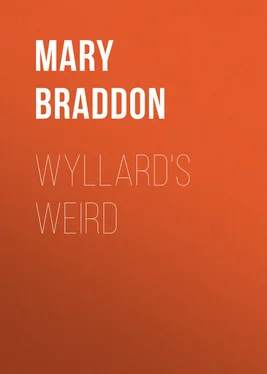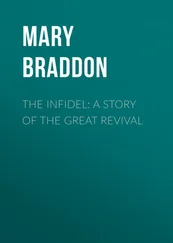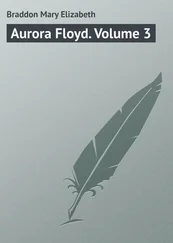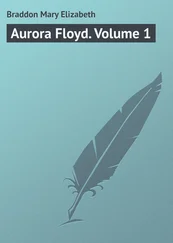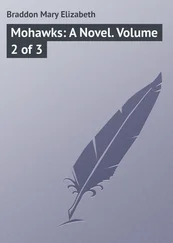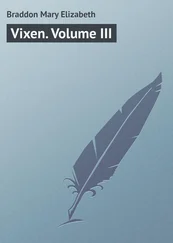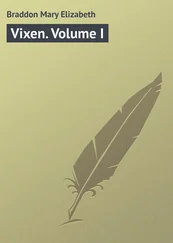Mary Braddon - Wyllard's Weird
Здесь есть возможность читать онлайн «Mary Braddon - Wyllard's Weird» — ознакомительный отрывок электронной книги совершенно бесплатно, а после прочтения отрывка купить полную версию. В некоторых случаях можно слушать аудио, скачать через торрент в формате fb2 и присутствует краткое содержание. Издательство: Иностранный паблик, Жанр: foreign_antique, foreign_prose, на английском языке. Описание произведения, (предисловие) а так же отзывы посетителей доступны на портале библиотеки ЛибКат.
- Название:Wyllard's Weird
- Автор:
- Издательство:Иностранный паблик
- Жанр:
- Год:неизвестен
- ISBN:нет данных
- Рейтинг книги:3 / 5. Голосов: 1
-
Избранное:Добавить в избранное
- Отзывы:
-
Ваша оценка:
- 60
- 1
- 2
- 3
- 4
- 5
Wyllard's Weird: краткое содержание, описание и аннотация
Предлагаем к чтению аннотацию, описание, краткое содержание или предисловие (зависит от того, что написал сам автор книги «Wyllard's Weird»). Если вы не нашли необходимую информацию о книге — напишите в комментариях, мы постараемся отыскать её.
Wyllard's Weird — читать онлайн ознакомительный отрывок
Ниже представлен текст книги, разбитый по страницам. Система сохранения места последней прочитанной страницы, позволяет с удобством читать онлайн бесплатно книгу «Wyllard's Weird», без необходимости каждый раз заново искать на чём Вы остановились. Поставьте закладку, и сможете в любой момент перейти на страницу, на которой закончили чтение.
Интервал:
Закладка:
Mrs. Wyllard blushed faintly as she turned to look at an approaching horseman. She had not, even to this day, left off blushing at any sudden mention of Edward Heathcote's name; and yet it was seven years since she had jilted him in order to marry Julian Wyllard.
A sad story, all forgiven now, if not forgotten. A deep wrong done by a noble-hearted woman to a noble-hearted man. It was the one act of Theodora Wyllard's life which she could not look back upon without remorse. In all other relations of life she had been perfect – devoted daughter, devoted wife. But in this one thing she had sinned. This man had loved her faithfully, fondly, from the dawn of her girlish beauty, from the beginning of her womanly grace. She had accepted his love, and had seemed to herself to return it, measure for measure. She had looked forward to the years when they two would be one. And then, in a fatal hour, another face flashed across the foreground of her life – a new voice thrilled her ear – an influence was exercised over her which she had never felt before, a power too potent for resistance – and, in a moment of passionate self-abandonment, she knelt at Edward Heathcote's feet, and confessed her love for another. Julian Wyllard had broken down all barriers, had asked her to be his wife, knowing her to be engaged to another man. But there are those who think that a great irresistible love outweighs all scruples of honour or conscience.
"Why do you ask me for your freedom, as if it were so great a favour?" Heathcote said bitterly, as he lifted her up from her knees. "Do you think I would have you – this mere beautiful clay – now that your heart has gone from me? Do you think I, who love you a hundred times better than I love myself, would stand between you and happiness? You are free, Dora. I have seen this misery coming upon me ever since this stranger came into your mother's house."
"And you will forgive me?" she pleaded, with clasped hands, looking at him with streaming eyes, sorry for him, deeply ashamed of her infidelity.
"Can I be angry with you, loving you as I do? God forgive you, Dora, for all your sins, large or small, as freely as I forgive your sin against me."
He kissed her unresisting lips for the last time, and so left her, as nearly broken-hearted as a man can be and yet recover.
He did recover, or was, at any rate, supposed to be cured, since, two years after Theodora Dalmaine's wedding, he married a fair young girl, penniless, friendless, and an orphan; a wife who loved him as he deserved to be loved, and who, after less than two years of wedded life, died, leaving two children, twin daughters. It was three years since the grave had closed upon her, and Edward Heathcote was still a widower, and was believed to have no thought of marriage.
He came riding slowly along the street in the fading light, a man of striking appearance, mounted on a fine horse, a man of about three-and-thirty, tall, broad-shouldered. He had a dark complexion, and dark-brown hair, deep-set gray eyes, which looked almost black under dark heavy brows, an aquiline nose, a heavy moustache and beard.
He had begun life as a younger son, and had practised for some years as a solicitor in the town of Plymouth – had been town clerk and a man of public importance in that place – when his elder brother died a bachelor, and Edward Heathcote inherited a snug little estate near Bodmin, with a curious old country house called The Spaniards. The place had been so named on account of the Spanish chestnuts which flourished there in exceeding beauty. On becoming owner of The Spaniards, and the estate that went with it, Edward Heathcote retired from the law, and went to live at the place of his birth, where he looked after the well-being of his baby girls and his young sister, and let his days glide by in the quiet monotony of a country squire's life, hunting and shooting, sitting in judgment upon poachers and small defaulters at petty sessions, and acting as coroner for his division of the county. He had been leading this life of rural respectability for a year.
He rode up to the carriage and shook hands with Mrs. Wyllard. He was her neighbour, and had visited Penmorval during the last year. There had never been the faintest indication in his manner or his speech that Julian Wyllard's wife was any more to him than a friend. He was pleased to visit her, anxious that she should be interested in his motherless children, pleased to confide his plans and his thoughts to her. Time had sobered his enthusiasm about all things, and had softened all bitter memories. He took life now as a gentle legato movement. He had lived and suffered, and done his duty, and that which was left to him was rest. He sat down among his fields and his vineyards to take his ease just a little earlier than other men, that was all. A great sorrow suffered in the morning of life ages a man by at least a decade.
"Why are you waiting outside the station-house?" he asked; "have you had an alarm of burglars at Penmorval?"
"It is something much worse than that," answered Mrs. Wyllard gravely; and then Bothwell related the catastrophe on the railway.
Julian Wyllard came back to the carriage just as the story was finished.
"This will be a job for you, Heathcote," he said.
"A very sad one. The story has a brutal sound to me, remembering past stories of the same kind," answered Heathcote. "It shall not be my fault if the ruffian escapes."
"You think there is a ruffian, then? You don't take it for a case of suicide?"
"Decidedly not," replied the other promptly. "Why should a girl choose such a death as that?"
"Why should a girl throw herself off the Monument?" asked Wyllard. "Yet we know girls had a rage for doing that, fifty years ago. However, you will have a good opportunity for the display of your legal acumen in a really mysterious case. I did all I could in my small way to put the officials on the alert along the line; and if any scoundrel had a hand in that poor child's death, I don't believe he will get off easily. Where are you riding?"
"Only for an evening stroll over the downs."
"You had better come home and have supper with us. It will be too late to call it dinner."
"You are very good, but I dined at seven. Besides, I shall have to arrange about this inquest for to-morrow. I'll talk to Morris, and then ride on to the Vital Spark, and settle matters with the people there."
The Vital Spark was the small roadside inn where the dead girl was lying. The Penmorval barouche drove off, while Edward Heathcote stopped to talk to Morris, the Inspector. The jury would have to get notice early next morning. The inquest was to be held at five in the afternoon. This would give time for the tradesmen to get away from their shops. The chief business of the day in Bodmin town would be over.
"It will give time for any one in this neighbourhood, who knows anything about the girl, to come forward," added Mr. Heathcote. "If she was going to a situation in this part of the world, as Mr. Wyllard suggests, some one must know all about her."
"What a man he is, Mr. Heathcote!" said the Inspector admiringly. "Such clearness, such decision; always to the point."
"Yes, he is a very superior man," answered Heathcote heartily.
He had schooled himself long ago to generous thoughts about his rival. It pleased him to know that Dora had been lucky in her choice, that she had not taken a scorpion into her bosom when she preferred another man to himself. He had wondered sometimes – in a mere idle wonder, when he saw her in her beautiful home at Penmorval – whether it would have been possible for him to make her life happier than Julian Wyllard had made it; whether in his uttermost adoration he could ever have been a better husband to her than Julian Wyllard had been. He had looked searchingly for any flaw in the perfection of that union, and he had perceived none. He was generous-minded enough to be glad that it was so.
Читать дальшеИнтервал:
Закладка:
Похожие книги на «Wyllard's Weird»
Представляем Вашему вниманию похожие книги на «Wyllard's Weird» списком для выбора. Мы отобрали схожую по названию и смыслу литературу в надежде предоставить читателям больше вариантов отыскать новые, интересные, ещё непрочитанные произведения.
Обсуждение, отзывы о книге «Wyllard's Weird» и просто собственные мнения читателей. Оставьте ваши комментарии, напишите, что Вы думаете о произведении, его смысле или главных героях. Укажите что конкретно понравилось, а что нет, и почему Вы так считаете.
